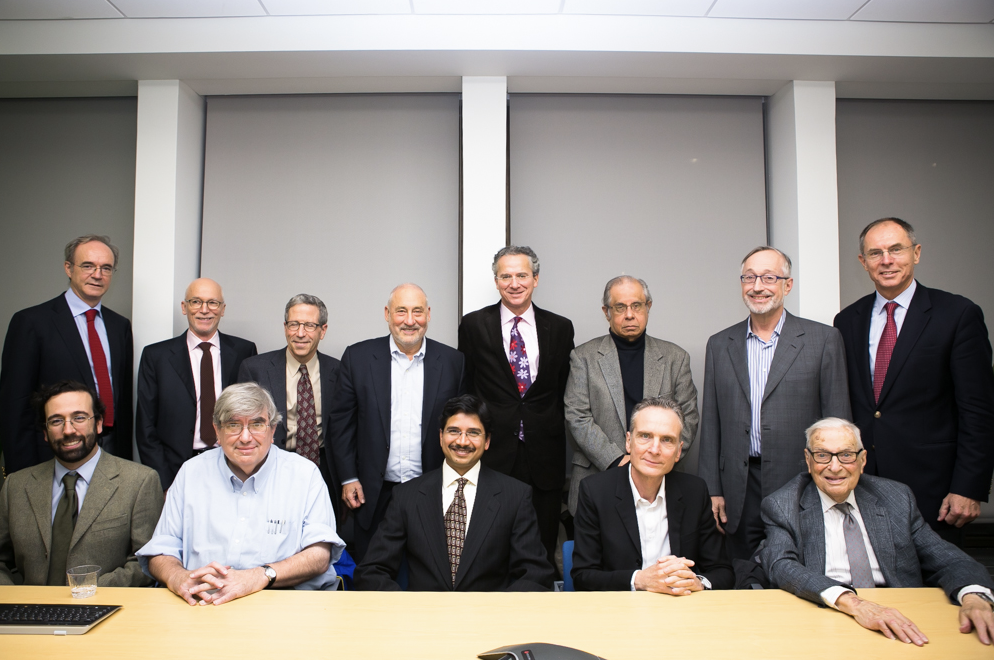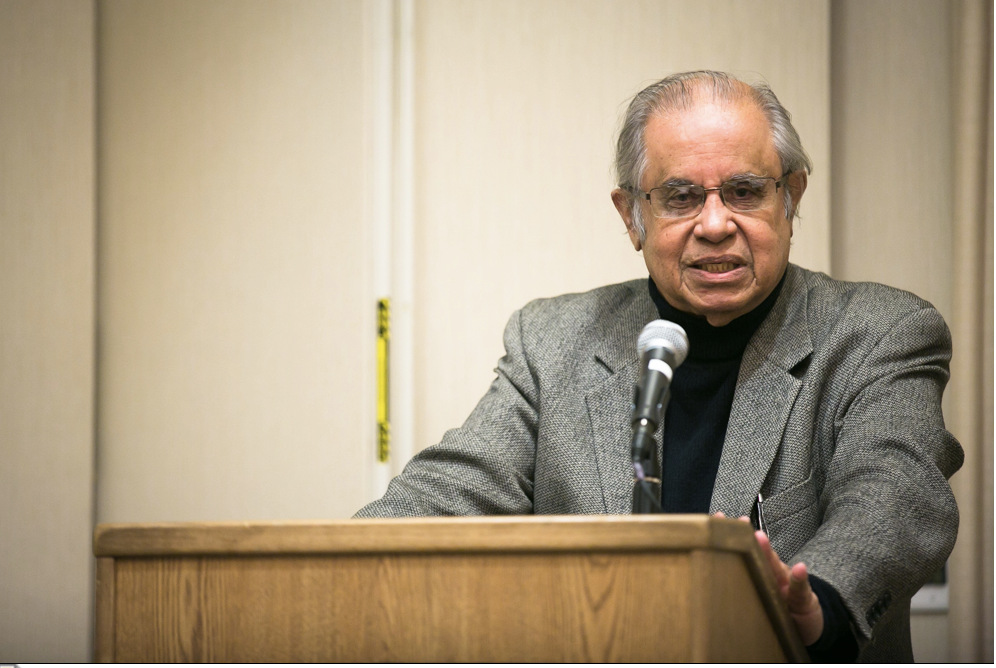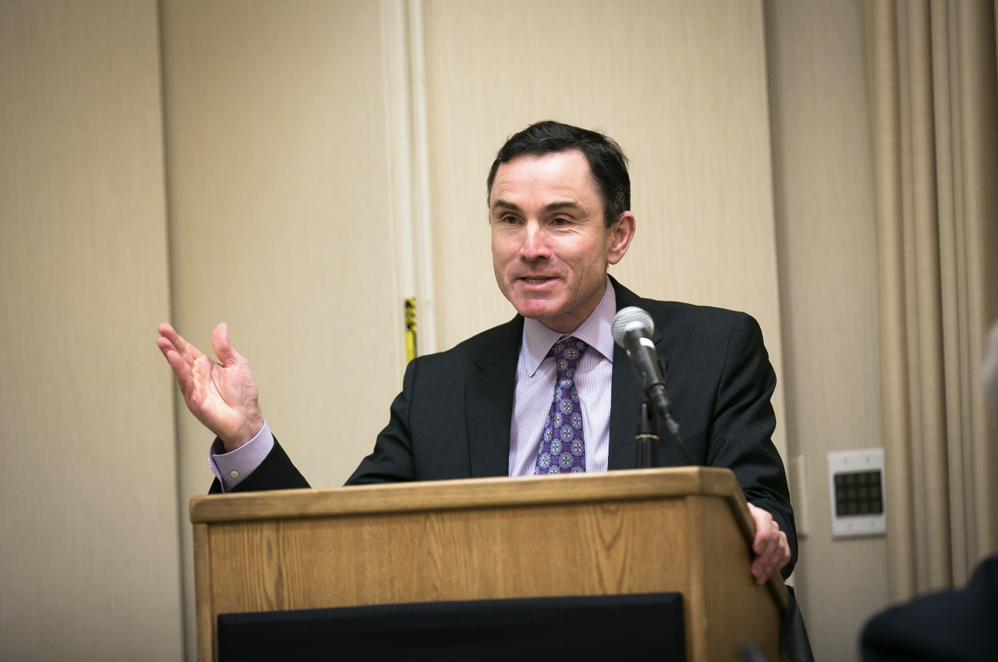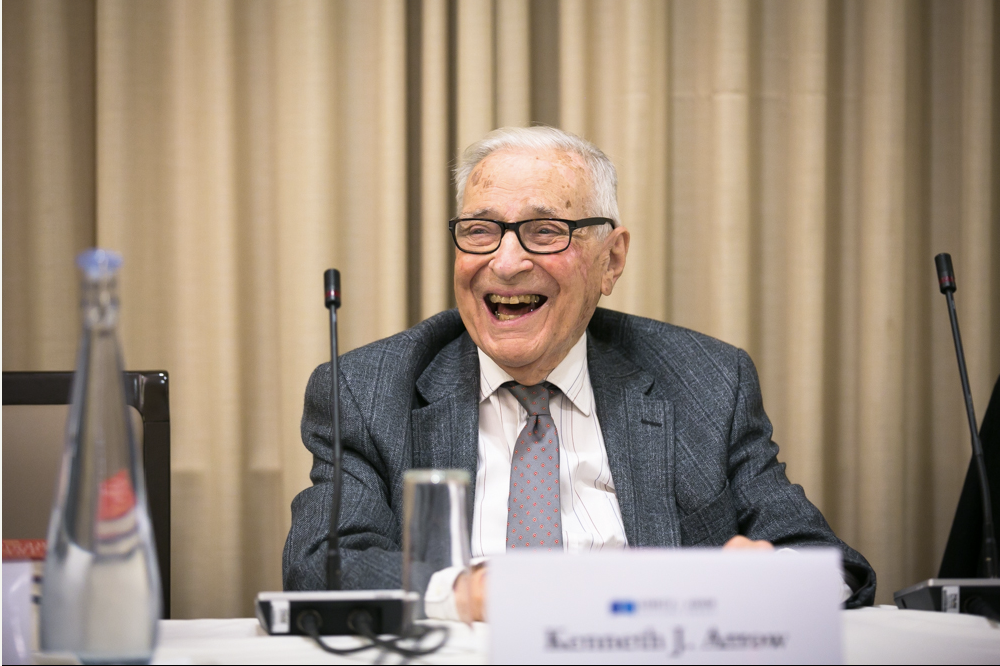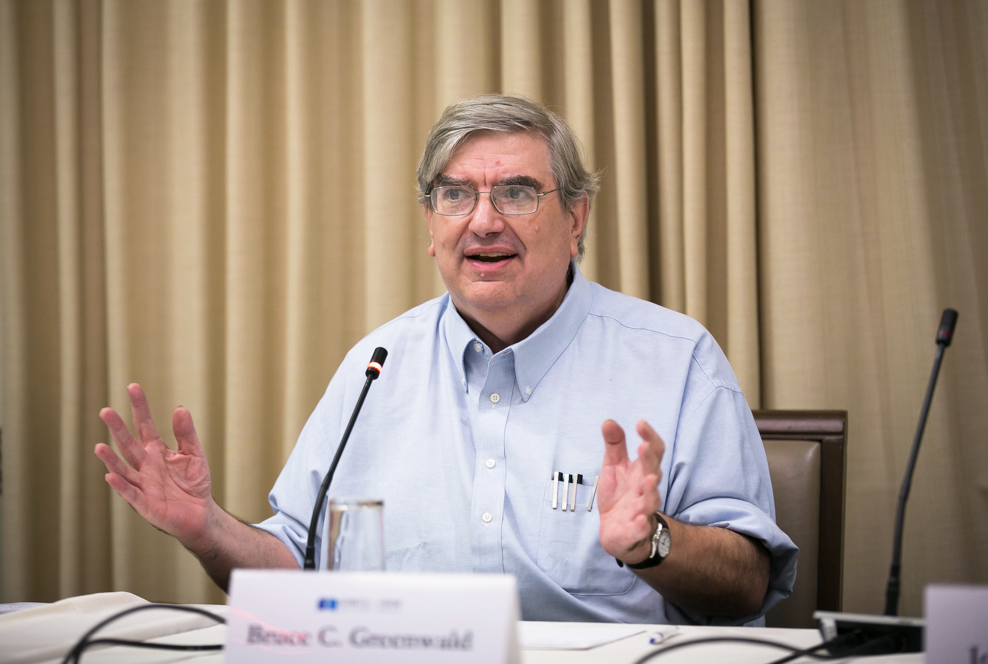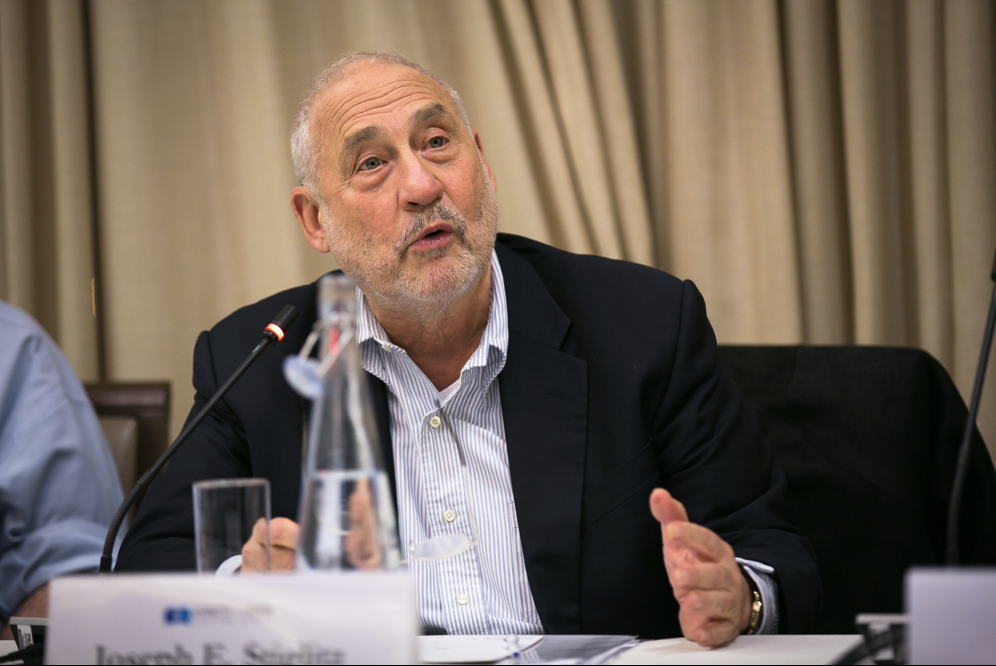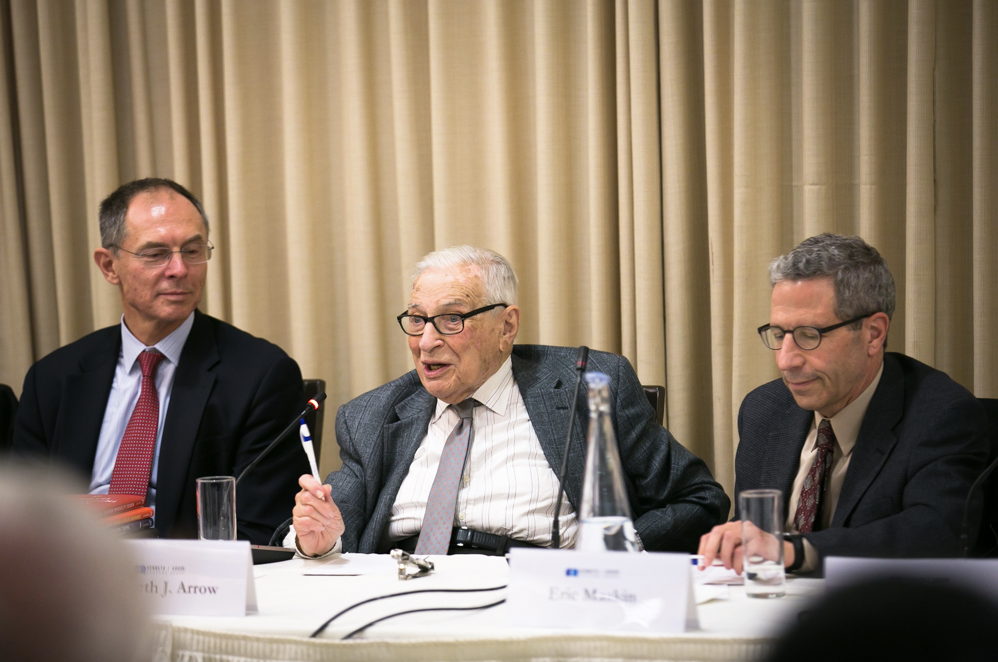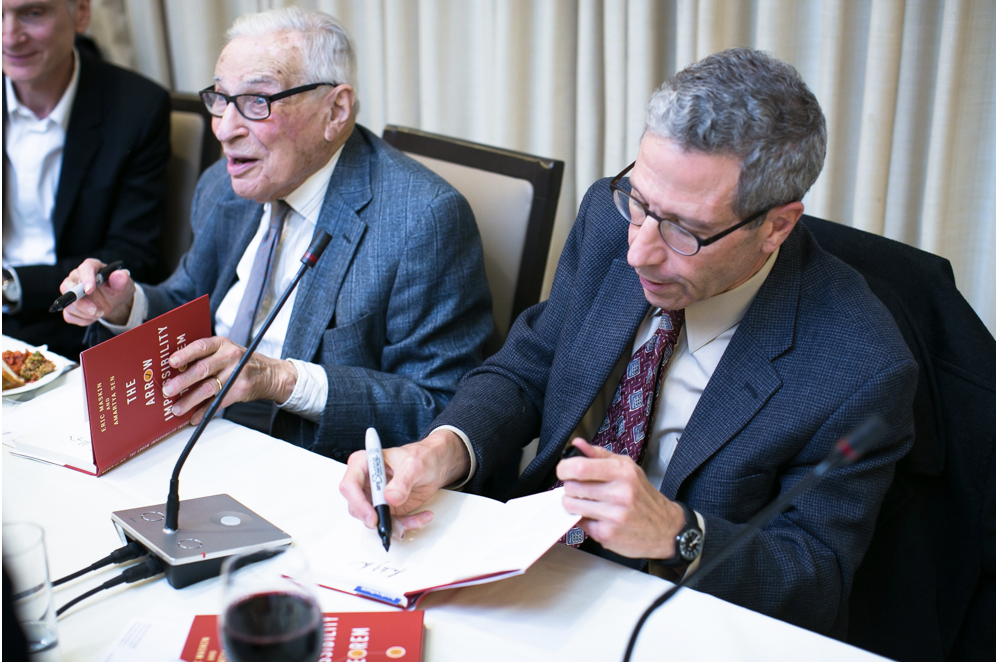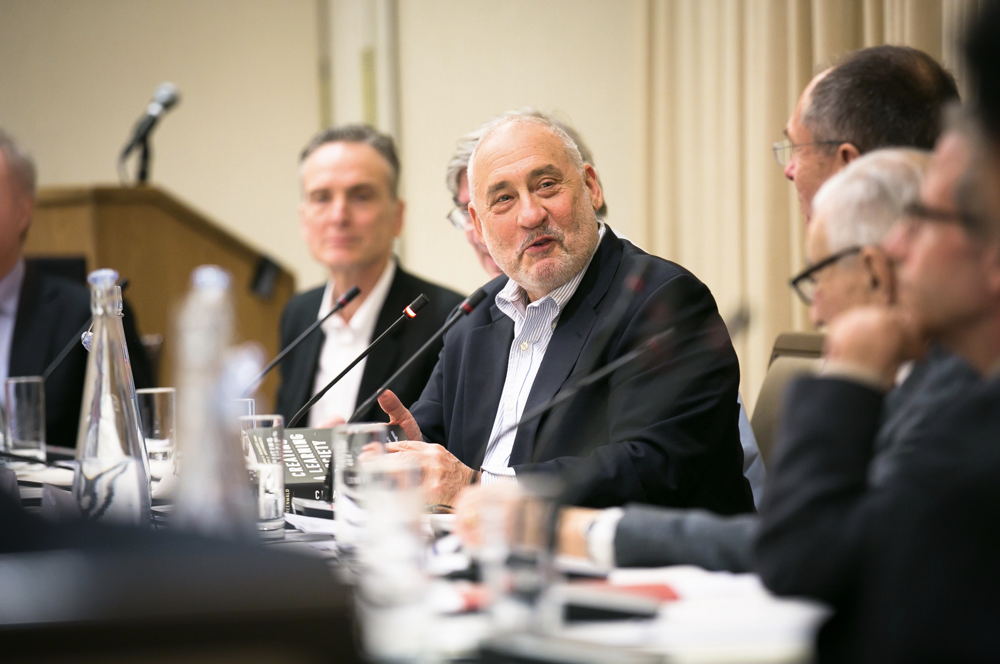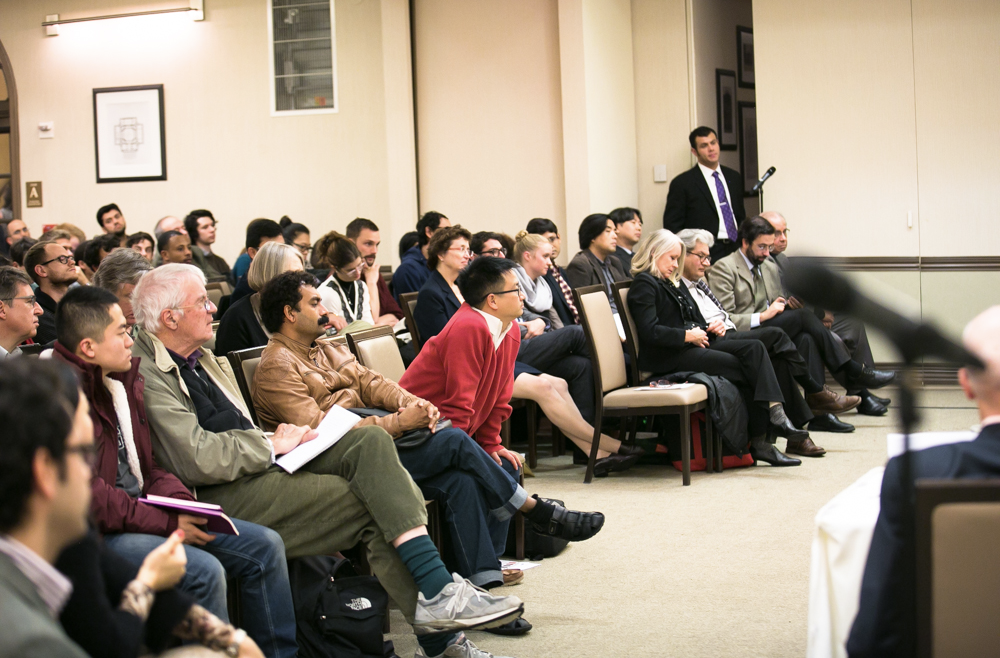On Monday November 17, an incredible group of economists gathered at Columbia University Faculty House to celebrate the inspiring contribution of Professor Kenneth J. Arrow to their own work and the publication of the first four book volumes within the Kenneth J. Arrow Lecture Series.
The Kenneth J. Arrow Lecture Series, published by Columbia University Press, highlights economists—from Nobel laureates to innovative younger scholars—whose work builds on Arrow’s scholarship as well as his innovative spirit. The series provides a venue for leading economists to discuss Professor Arrow’s path-breaking theories and research in the context of today’s most pressing issues.
Professor Arrow is Professor of Economics and of Operations Research, Emeritus at Stanford University. He earned his MA and PhD from Columbia University, where his dissertation explored his famous “impossibility theorem” and became the foundation for his seminal book, Social Choice and Individual Values. He was awarded the Nobel Memorial Prize in Economic Sciences with John Hicks in 1972 for their “pioneering contributions to general economic equilibrium theory and welfare theory.” Arrow has also made major contributions to endogenous growth theory and information economics, and is considered one of the most influential practicing economists.
The panel was comprised of groundbreaking economists including Scott Barrett, Patrick Bolton, Bruce C. Greenwald, Geoffrey Heal, Eric Maskin, Paul Milgrom, Bernard Salanié, Jay Sethuraman, José A. Scheinkman, Joseph E. Stiglitz and Jan Svejnar, from Columbia University, Stanford University and Harvard University. Kenneth Arrow sat at the center, surrounded by the scholars whose work owes to his intellectual legacy.
“A Russian proverb says: the way influence works is like the way the knight moves in a chess game: first forward and sideways”--said Patrick Bolton, Economics Professor at Columbia University-- “but in the case of Ken Arrow, it goes in all directions!” Jose Scheinkman confessed it would have been “much easier to be asked about what he had not been influenced by Professor Arrow”. Bruce Greenwald praised Arrow for being the most “creative econometrician” and so did the rest of the panel for his timeless influence to the economic field, his ideas, style of research as well as the depth and breadth of his vision and contribution. Goeffrey Heal concluded that “every student of the past and current generation is a student of Kenneth Arrow” and he will continue to exert his influence for the generations to come.
Professor Arrow was given the chance to respond, sharing the personal interests that led him to explore the theories he then developed. Finally, the speakers presented their books, explorations of themes ranging from Moral Hazard in Health Insurance; Speculation, Trading, and Bubbles; The Arrow Impossibility Theorem and Creating a Learning Society: A new Approach to Growth, Development and Social Progress.
At the end of the presentations, a student from the PEPM program at SIPA asked “During your life, were there times when you wanted to explore a certain question but had to postpone, only to later discover that another economist had gotten the answer first?”
Professor Arrow responded, amused: “it is very common in this field for two or more economists to be working on solving the same problem. I often discovered that other colleagues had been working on issues I wanted to investigate, for example the uncertainty mechanism in John Nash’s theory of general equilibria. Other times, I found colleagues who had similar interests and joined forces, such as in the case of Lionel Wilfred McKenzie with whom I co-created the Arrow–Debreu–McKenzie model. This happens to many academics. I probably surprised several colleagues as well by getting the answer first.”
While waiting to have their book signed by the authors at the end of the discussion, several participants in the audience shared they were looking forward to the following evening event: the 7th Kenneth J. Arrow Lecture to be delivered by Professor Paul Milgrom, Shirley R. and Leonard W. Ely, Jr. Professor in Humanities and Sciences at Stanford University, on Prices and Decentralization without Convexity.
By Maelis Carraro, MIA-MBA Dual Degree Candidate, ‘16

